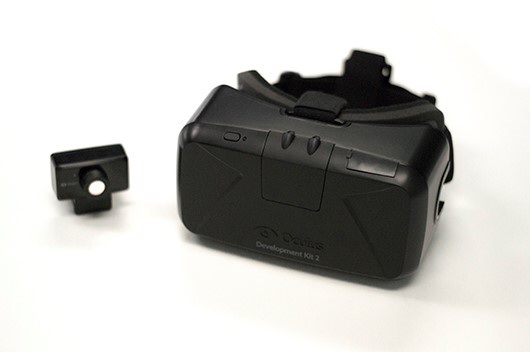
Allow me to juxtapose a couple new developments following Facebook’s acquisition of Oculus VR. For much of Friday, the top post in Reddit’s technology section — and one of the top posts on the front page — has been a link to a new Oculus Rift competitor called the Totem.
Never mind that Totem’s creators, True Player Gear, have not yet shown a working prototype, let alone given a price or a release date, either for developers or consumers. The post linking to True Player Gear’s website had, at my last count, more than 3,000 upvotes and 1,600 comments.
Clearly, there’s a desire for some sort of Oculus reboot — a fresh start at building virtual reality through grassroots efforts. I can only imagine what would’ve happened if Totem’s creators had a Kickstarter campaign in place today.
But elsewhere on the web, something different was happening with virtual reality: Michael Abrash, an industry legend who, according to TechCrunch, was leading Valve’s own virtual reality efforts, is moving to Oculus. In a blog post, Abrash specifically cited the Facebook acquisition — and the vast resources Facebook can provide — as a key factor in his decision. “I now fully expect to spend the rest of my career pushing VR as far ahead as I can,” Abrash wrote.
No disrespect to True Player Gear, but at this point, anyone who thinks a small startup — let alone a crowdfunded one — can take on Oculus is deluding themselves. Thanks to Facebook, the minimum buy-in for virtual reality has grown immensely, just over the last few days.
As a reminder:
At the moment, there are lots of smaller projects trying to stake a claim in the virtual reality business. I predict that many will wither away, and those that don’t will either be snatched up by larger companies or live on as tiny niche projects. Without considerable resources, it’s going to be nearly impossible to compete on a large scale.
I see this as mostly welcome news. Oculus Rift in its current state is so far removed from what it could become. (Imagine, for instance, a fully wireless device light enough to slip on like a pair of glasses.) The sooner virtual reality gets taken seriously by consumer-facing companies with gobs of research and development money, the faster it can improve into a viable a consumer product.
Do I have concerns about Facebook leading the charge? Absolutely. And on some level, I’m sad that virtual reality is dashing past its geeky, grassroots phase at a faster clip now. But Facebook’s acquisition of Oculus increases the odds that virtual reality won’t stay in that phase forever, and that’s a good thing.
More Must-Reads from TIME
- Inside Elon Musk’s War on Washington
- Meet the 2025 Women of the Year
- For America’s Aging Workforce , ‘Retirement Is a Distant Dream’
- Why Do More Young Adults Have Cancer?
- Colman Domingo Leads With Radical Love
- How to Get Better at Doing Things Alone
- Cecily Strong on Goober the Clown
- Column: The Rise of America’s Broligarchy
Contact us at letters@time.com